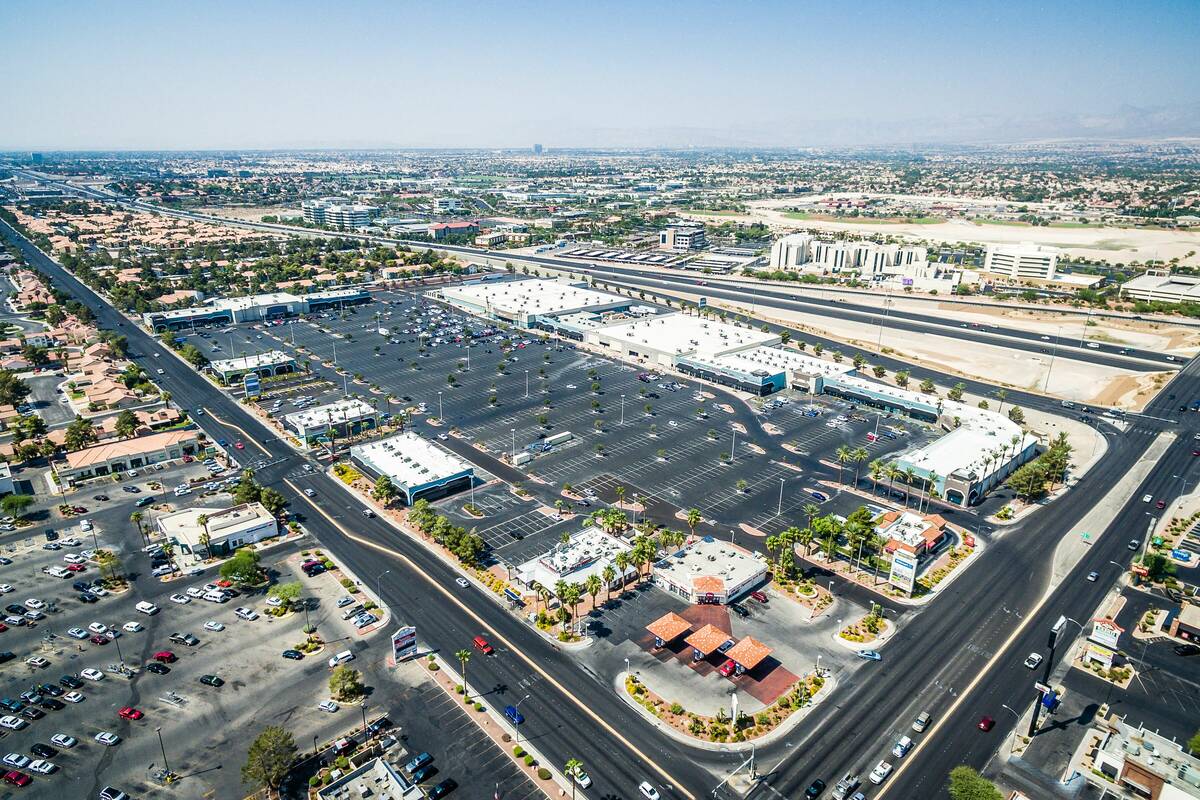COMMENTARY: Government must release more Clark County land for productive purposes
The federal government owns more than 80 percent of Nevada, more than any other state in the union. In Clark County, the federal government owns more than 90 percent of all real estate. When privately developable land was plentiful, this statistic was overlooked. But it is now in the spotlight as Clark County is running out of this land. The entire community should be watching this issue and urging our federal delegation to take action. Land is a vital asset critical to Southern Nevada’s economic resilience and even its survival.
Land scarcity exacerbates our affordable housing crisis. Gov. Joe Lombardo’s recent letter to President Joe Biden reflects this truth. This is not political theater. This is urgent. Clark County’s economic well-being depends on a consistent and affordable housing supply. Without land for new development, the cost of owning and renting will rise. The average Clark County resident can’t bear further significant cost-of-living increases. Releasing more land for development would help alleviate this issue.
This land shortage has a direct impact on Nevada’s economy. State and local economic development agencies have historically attracted large employers by helping them find space, navigating regulations and providing other financial incentives. These economic development tools have enabled businesses to invest in their facilities and workforce, resulting in increased property and sales tax revenue to fund needed public infrastructure, schools and other government services. Without adequate developable land, Nevada risks falling behind other competing states in attracting investments and fostering economic development.
Land scarcity also stifles renewable energy production. Renewable energy projects frequently require large plots of undeveloped land. Nevada has abundant renewable energy resources, and expanding private development can help to harness these resources, resulting in a more sustainable energy future for the state and country.
Finally, releasing federal land allows Nevada to guide its own future, rather than relying on the federal government. Southern Nevada is missing out on significant development opportunities because it is majority-owned by the federal government. Land in federal hands doesn’t generate the same economic return as private development, and the federal government doesn’t pay property taxes.
The United States exists as a union of states based on the assumption that local governments understand the needs of their communities better than distant decision-makers do. That’s why Nevada must have the same level of empowerment as the neighboring states that compete with us.
To be clear, Nevada has contributed more to conservation than any other state, ever. Nevada has pioneered habitat conservation for endangered species and implemented the most productive reuse program among the Colorado River compact’s states. With each release of federal lands in Nevada, a large portion is permanently dedicated to conservation. By striking a balance between conservation and economic development, we can ensure sustainable long-term growth, create jobs and strengthen our global competitiveness.
It’s also time for the public to understand our water situation. The public perception that the Las Vegas Valley is “running out of water” and our construction activities are draining Lake Mead is not true. We are one of the most water-efficient communities in the world — with per-capita water use down 58 percent since 2002, despite population growth of 52 percent.
Over the past two decades, we have repeatedly demonstrated that we can reduce use and grow at the same time. Because of our robust reuse program, consumptive losses are limited to exterior usage via landscape irrigation and evaporative cooling. Managing the amount of water lost to these uses is the final barrier to becoming truly self-sufficient.
Fortunately, local leaders have worked tirelessly to safely eliminate evaporative cooling in all new developments, as well as to remove and prohibit the use of useless and ornamental grass throughout the valley. They’ve done such an effective job addressing “consumptive use” that efforts are now being made to mitigate the “urban heat island effect” with tree planting programs and other innovative approaches. It is a delicate balance. Fortunately, our water resource management leaders are among the world’s best.
When developers request more land, a common response from certain groups has been that the solution is not more land, but more density and vertical building. Setting aside concern that higher density exacerbates traffic problems, many developers would welcome higher density. However, our community is not yet prepared for widespread high-density development. It’s significantly more expensive, as higher building costs require higher rents to make projects viable. If it is not economically viable, developers won’t build it.
Affordability is already a major issue for our local population. More land would help alleviate this issue, at least until we as a community can make more progress in diversifying our economy, which would lead to more higher-paying jobs. Land’s role as an economic and community resource is central to creating a more resilient economy that produces higher-paying, higher-quality jobs.
Nevadans, including our elected and appointed officials, should elevate and highlight the need for Nevada to own more of its territory. We need a “win-win” solution, and our federal delegation has the ability to make it happen by advocating for legislation that would release additional lands for development.
Please encourage them to do so. It’s critical to creating affordability housing, developing sustainable energy and ensuring our economic viability.
Steve Neiger and Jamie Thalgott are on the board of directors for the Southern Nevada chapter of NAIOP, the Commercial Real Estate Development Association.

















